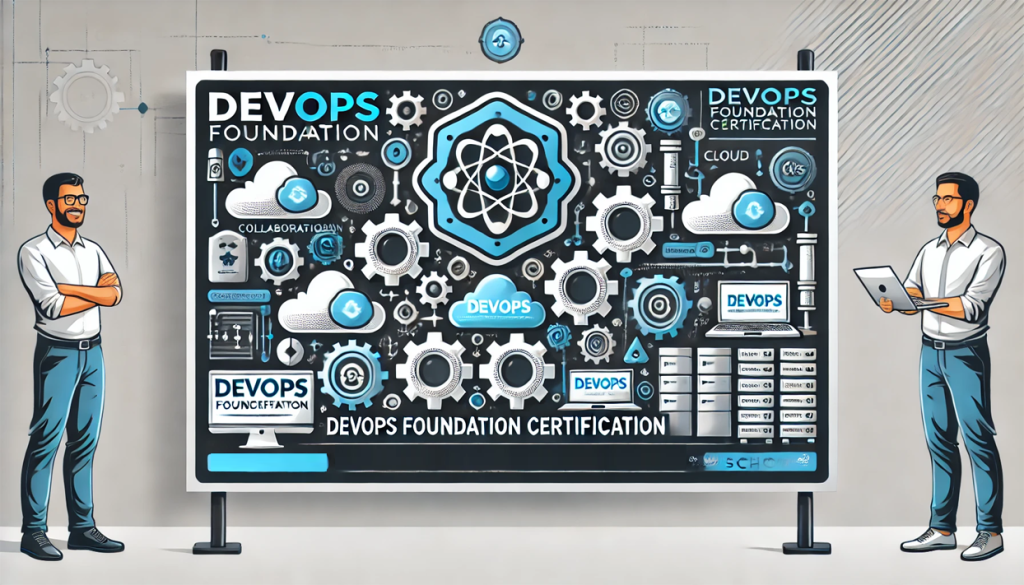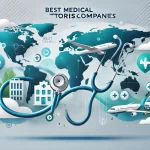
In today’s fast-paced IT environment, businesses are striving for faster and more reliable software development and deployment processes. This is where DevOps, a combination of development and operations, comes in. It fosters collaboration, automation, and continuous improvement. To help professionals develop a solid foundation in DevOps principles, DevOpsSchool, in association with Rajesh Kumar, has introduced the DevOps Foundation Certification. This post will guide you through the complete agenda, topics covered, and why this certification is essential for those looking to enter or advance in the world of DevOps.
1. What is DevOps?
- Definition: DevOps is a set of practices that combines software development (Dev) and IT operations (Ops) to shorten the software development life cycle while delivering features, fixes, and updates frequently in close alignment with business objectives.
- DevOps in the Industry: DevOps practices help in improving software delivery speed, reducing costs, and ensuring better collaboration between teams.
2. Overview of DevOps Foundation Certification
- Certifying Body: The DevOps Foundation Certification is offered by DevOpsSchool in collaboration with Rajesh Kumar, a leading expert in DevOps practices.
- Target Audience: This certification is intended for anyone looking to gain a deeper understanding of DevOps principles. It’s ideal for IT professionals, developers, system administrators, project managers, and anyone involved in software delivery.
- Prerequisites: No prior knowledge of DevOps is required, making it accessible to beginners as well as professionals looking to upgrade their skills.
3. Why Pursue DevOps Foundation Certification?
- Career Advancement: DevOps is one of the fastest-growing fields in IT, and certified professionals are highly sought after.
- Improved Collaboration: The certification equips you with the knowledge to improve collaboration between development and operations teams, fostering faster and more efficient software delivery.
- Hands-On Skills: You will gain practical skills in automation, continuous integration/continuous deployment (CI/CD), infrastructure as code, and monitoring.
4. Certification Agenda and Key Topics
The DevOps Foundation Certification offers an in-depth curriculum that ensures you gain a solid understanding of DevOps principles and practices. Below is the comprehensive agenda covered in the certification course:
A. Introduction to DevOps
- What is DevOps?: Understanding the core concepts, practices, and cultural shift that DevOps brings to organizations.
- DevOps History: Learn how DevOps emerged from agile software development methodologies and why it has become so popular.
- Business and IT Alignment: How DevOps improves business outcomes by aligning IT goals with business needs.
B. Key DevOps Practices
- Continuous Integration and Continuous Delivery (CI/CD): Learn how CI/CD pipelines automate the build, test, and deployment phases of software development to ensure faster, more reliable releases.
- Version Control with Git: How to use Git for tracking changes in source code and collaborating efficiently.
- Infrastructure as Code (IaC): An introduction to using tools like Terraform and Ansible to manage and provision infrastructure through code, enabling automation and consistency.
- Automation: The role of automation in DevOps and the tools used, such as Jenkins, Docker, Kubernetes, and more.
C. DevOps Tools and Technologies
- Version Control Systems: A deeper dive into Git, GitHub, and GitLab for managing source code and collaboration.
- Continuous Integration Tools: Introduction to Jenkins, Travis CI, and CircleCI for automating the integration and testing of code.
- Containerization and Orchestration: Learn how Docker and Kubernetes streamline application deployment and management across multiple environments.
- Cloud and DevOps: Using cloud platforms such as AWS, Azure, or Google Cloud in DevOps workflows for scalability, flexibility, and faster deployments.
D. DevOps Culture and Organizational Change
- DevOps Culture: Fostering collaboration between development, QA, and operations teams to create a culture of shared responsibility.
- Organizational Change Management: Learn how organizations can transition to a DevOps culture, and the importance of breaking down silos.
- Blameless Postmortems: Encouraging learning from failures without blaming individuals and using postmortems to improve processes.
E. Monitoring, Logging, and Incident Management
- Monitoring Tools: Introduction to popular tools like Prometheus, Grafana, and Nagios for monitoring system performance and uptime.
- Logging and Log Management: Using tools like ELK Stack (Elasticsearch, Logstash, Kibana) and Splunk to collect and analyze logs for better troubleshooting.
- Incident Management: Strategies for managing incidents in production environments, ensuring quick recovery, and preventing future incidents.
F. Security in DevOps (DevSecOps)
- Shifting Left on Security: How to integrate security early in the development process (DevSecOps).
- Security Tools: Learn about security tools such as SonarQube, Clair, and other security scanners that can be integrated into CI/CD pipelines.
- Securing Cloud Environments: Best practices for securing infrastructure and applications deployed in the cloud.
G. Lean and Agile in DevOps
- Lean Principles in DevOps: Understand how Lean principles of continuous improvement and eliminating waste apply to DevOps.
- Agile and Scrum: How Agile methodologies align with DevOps and the importance of short sprints, continuous feedback, and adaptability.
- Value Stream Mapping: Learn how to visualize and optimize the flow of work through development, testing, and operations.
5. Exam Preparation Tips
- Focus on Core Concepts: Thoroughly understand the foundational principles of DevOps such as CI/CD, automation, and culture change.
- Hands-On Practice: Work on real-world scenarios using DevOps tools like Git, Jenkins, Docker, and Kubernetes to solidify your skills.
- Attend Live Sessions: Leverage the live training sessions conducted by Rajesh Kumar to clarify doubts and gain deeper insights into the practical aspects of DevOps.
- Join DevOps Communities: Engage with the DevOps community through forums and discussions to stay updated with the latest trends and best practices.
6. Certification Exam Details
- Format: The DevOps Foundation Certification exam is a multiple-choice test conducted online.
- Duration: The exam duration is typically 60 to 90 minutes.
- Passing Criteria: You must score 70% or higher to pass the exam and obtain the certification.
- Recertification: It’s recommended to stay updated with the evolving DevOps landscape and consider recertifying every 2-3 years to ensure knowledge of the latest tools and practices.
7. Conclusion: Why Choose DevOps Foundation Certification?
The DevOps Foundation Certification by DevOpsSchool, in collaboration with Rajesh Kumar, provides a solid starting point for individuals aiming to build a career in DevOps. The certification not only equips you with essential knowledge but also provides hands-on experience with industry-leading tools and practices. Whether you are an IT professional looking to switch to DevOps or a student interested in learning about this growing field, this certification ensures that you are well-prepared for the demands of modern software development and operations.






Leave a Reply
You must be logged in to post a comment.